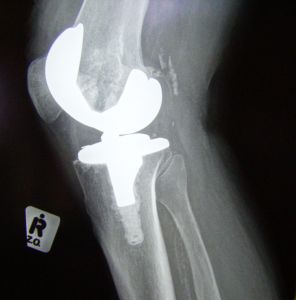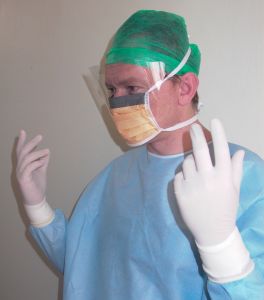According to a recent article from the West Virginia Record, a federal jury has just awarded a plaintiff $3.27 million in a multidistrict litigation (MDL) case involving transvaginal mesh (TVM) products manufactured by Johnson & Johnson.
 This case involved the Gynecare TVT Obturator. This device, manufactured by Ethicon, a Johnson & Johnson subsidiary, is a surgically implanted medical device used in the treatment of stress urinary incontinence. The TVM device consists of what is essentially a layer of mesh being held within a support device. The fact that it is supported in this manner is the reason it is called a tension-free vaginal tape (TVT) design, which was marketed as being superior and safer than previous TVM devices that are linked to serious injuries to patients, including erosion of tissue and vaginal dehiscence.
This case involved the Gynecare TVT Obturator. This device, manufactured by Ethicon, a Johnson & Johnson subsidiary, is a surgically implanted medical device used in the treatment of stress urinary incontinence. The TVM device consists of what is essentially a layer of mesh being held within a support device. The fact that it is supported in this manner is the reason it is called a tension-free vaginal tape (TVT) design, which was marketed as being superior and safer than previous TVM devices that are linked to serious injuries to patients, including erosion of tissue and vaginal dehiscence.
As our TVM plaintiff attorneys in New England understand, these products pose several other risks to women, including erosion of the mesh itself. There is also a risk that, when the device is surgically implanted through incisions made in the vagina and then anchored to the pelvic bone, the patient’s bowel and other internal organs may be perforated (punctured), resulting in internal bleeding, urinary incontinence, and potentially deadly infections.
In this case, the jury found that the drug company had defectively designed the product and failed to adequately warn doctors and patients of known risks. The verdict was in the amount of $100,000 to compensate for medical expenses, $470,000 in pain and suffering and emotional distress that had already been experienced, and $2.5 million for pain and suffering, disability, and loss of enjoyment of life that will likely be experienced by plaintiff in the future. Plaintiff’s husband was also awarded $200,000 in damages associated with loss of consortium.
Continue reading
 According to a recent article in the Charlotte Observer, hospital officials, who say they are trying to focus healthcare from volume to value, believe that patients will benefit from the new bundled approach to joint replacement surgery.
According to a recent article in the Charlotte Observer, hospital officials, who say they are trying to focus healthcare from volume to value, believe that patients will benefit from the new bundled approach to joint replacement surgery. Product Liability Lawyer Blog
Product Liability Lawyer Blog












